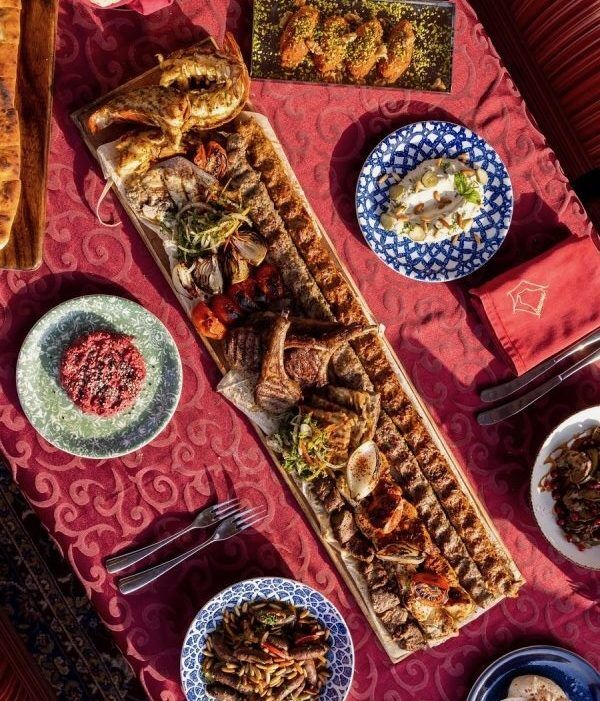Introduction:
As the crescent moon heralds the arrival of Ramadan, Muslims worldwide embark on a journey of spiritual reflection, communal prayer, and fasting from dawn till dusk.
Amidst the serene moments of devotion and the joyous gatherings with loved ones, the significance of food safety in Ramadan month cannot be overstated. For the restaurants and hospitality industry, Ramadan presents a unique opportunity to uphold the highest standards of food safety while serving the needs of their guests.
1. A Month of Spiritual Fulfillment and Culinary Delights
During Ramadan, Muslims observe fasting from dawn till dusk, punctuated by the pre-dawn suhoor meal and the evening iftar feast. For the hospitality industry, this translates to an increased demand for dining options, both before sunrise and after sunset.
Restaurants, hotels, and catering services play a vital role in providing nourishing meals that cater to the spiritual and culinary needs of fasting individuals and their families.
However, alongside the celebration of food, ensuring its safety becomes paramount to uphold the values of health and wellness during Ramadan.
2. The Impact of Fasting on Food Safety
The extended fasting hours during Ramadan, coupled with warmer temperatures in many regions, create conditions conducive to bacterial growth and food spoilage.
Foodborne illnesses pose a significant risk, especially when large quantities of food are prepared and consumed during iftar gatherings.
It’s essential for the hospitality industry to be vigilant and implement stringent food safety measures to mitigate these risks and ensure the well-being of their guests.
3. Embracing the Blessings of Food Safety Education
Educating restaurant staff and hospitality professionals about food safety principles specific to Ramadan is critical.
This education should cover proper food handling techniques, hygiene practices, and sanitation protocols tailored to the unique challenges posed by the fasting period.
By equipping employees with the knowledge and skills to maintain food safety standards, establishments can prevent foodborne illnesses and uphold their commitment to guest satisfaction and well-being.
4. Cultivating Unity Through Collective Action
Ramadan is a time of community and compassion, values that resonate deeply within the hospitality industry.
Collaborative efforts between restaurants, hotels, and catering services can enhance food safety practices and create a safer dining environment for all.
By sharing best practices, conducting regular inspections, and supporting each other in upholding food safety standards, the industry can collectively safeguard the health and happiness of its patrons during Ramadan and beyond.
5. Celebrating Safely: The Heart of Ramadan Hospitality
As restaurants and hotels welcome guests for iftar and suhoor gatherings, they must prioritize the safety of the meals served.
Adhering to strict food safety guidelines, including proper handling, storage, and preparation techniques, is essential to prevent foodborne illnesses and ensure a memorable dining experience for guests.
By maintaining high standards of food safety, establishments can uphold their reputation for excellence and hospitality while safeguarding the health of their patrons.
6. A Legacy of Health and Happiness
By prioritizing food safety in Ramadan, the hospitality industry not only meets the immediate needs of its guests but also leaves a lasting legacy of health and happiness.
The practices implemented and lessons learned during this sacred month can shape the industry’s standards for years to come, ensuring that every dining experience is not only delicious but also safe and nourishing.
As restaurants and hotels prepare to welcome guests for Ramadan, they have an opportunity to showcase their commitment to excellence and contribute to the well-being of their communities.
7. Strengthening Hygiene Measures
In addition to food safety, maintaining high standards of hygiene is crucial during Ramadan. Regular cleaning and sanitization of kitchen facilities, dining areas, and utensils are essential to prevent cross-contamination and ensure the safety of guests.
Providing hand sanitizers and encouraging handwashing among staff and guests further enhances hygiene practices and reduces the risk of foodborne illnesses.
8. Adapting Menus for Health and Well-being
During Ramadan, many individuals seek lighter and healthier meal options to support their fasting journey.
Restaurants and catering services can cater to these preferences by offering a variety of nutritious and balanced dishes that provide sustained energy without compromising on taste.
Incorporating seasonal fruits, vegetables, and whole grains into menus not only enhances the dining experience but also promotes health and well-being.
Conclusion:
As Ramadan draws near, the hospitality industry has a unique opportunity to embrace its role in promoting health, harmony, and happiness.
By prioritizing food safety, hygiene, and well-being, establishments can ensure that every meal served is a source of nourishment, joy, and spiritual fulfillment for their guests.
Let us come together to celebrate Ramadan safely, upholding the values of hospitality and compassion that define this blessed month.
